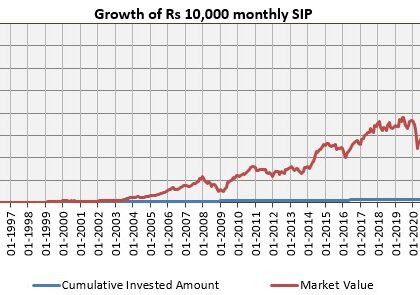- HOW TO COMPLETE KYC AND START INVESTING IN MUTUAL FUNDS?
Investors can now complete their KYC digitally without having to visit any mutual fund office, registrar or distributor’s office using Aadhar-based E-KYC investors who are not tech savvy can do so by filling a physical form with documents such as photograph, permanent account number(PAN) and proof of address, and getting in person verification(IPV) done either at the mutual fund office or through a mutual fund distributor.
- DOES A MINOR INVESTOR NEED TO BE KYC COMPLIANT?
A minor’s KYC is not required as the minor is investing through a guardian, who need to have KYC compliance. Once the minor turn 18 years old they will have to follow the process and complete KYC.
- WHAT IS AADHAR BASED E-KYC?
Aadhar based E-KYC is a digital method for investors to complete KYC. It removes the hassle of in-person verification and the need to visit any office. Investors can log on to the mutual fund website or its registrar or third party distributor websites, which allow investments in mutual funds to get this done. A validation of investor credentials is done by sending a one-time password on the mobile number registered with Aadhar. In addition, the investor should have a device with camera and permission to access camera, location and microphone. The investor also needs to upload a self-attested PAN copy and image of signature on plain paper to complete this process. Once the KYC is done the investor can start investing in mutual funds.
If the investor’s mobile number registered with UIDAI differs from the existing one, then the investor will have to update the mobile number with UIDAI first.
- WHY IS IT IMPORTANT TO BE KYC COMPLIANT EVEN IF THE MUTUAL FUND INVESTMENT IS OLD?
No fresh investment, be it purchase request, systematic investment plan(SIP) registration or renewal will be accepted without the completion of the KYC. Regulations now mandate an investor to be KYC compliant not only at the time of investment but also when there is a redemption request placed in a mutual fund.
Any investor who had an old folio in a mutual fund and was not KYC compliant then also needs to be KYC compliant when placing a request for redemption of mutual fund units. In case of more than one holder in a mutual fund, all the investors need to be KYC compliant. Even in the event of the demise of a unitholder, for the transmission of units to the beneficiary, the beneficiary needs to be KYC compliant.ALL ABOUT MUTUAL FUND KYC-ARTICLE 16

